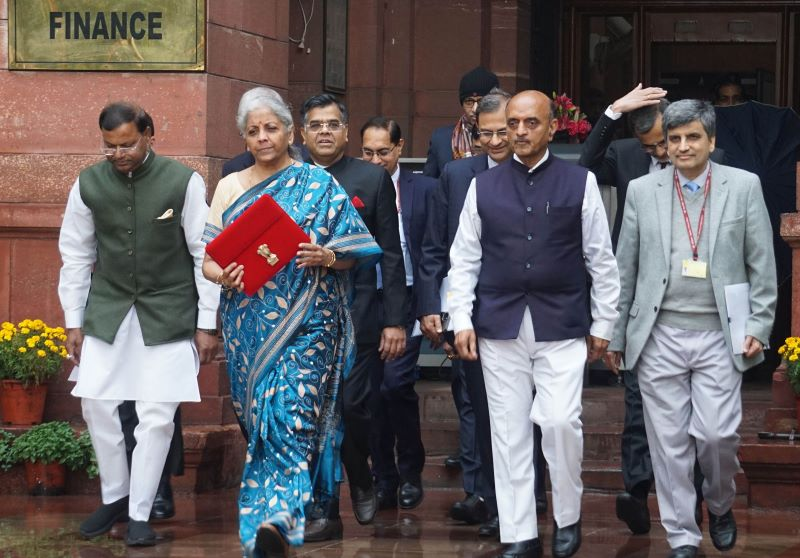
Income Tax Budget 2024 expectations: Will Nirmala Sitharaman introduce new tax breaks or modify existing ones?
New Delhi: As the Union Budget 2024 approaches, taxpayers and financial experts are keen to see if new tax deductions will be introduced or existing ones modified.
This annual fiscal event plays a crucial role in the financial planning of millions of Indians and shapes the country's economic direction.
India's tax structure currently includes various deductions under different sections of the Income Tax Act. For instance, Section 80C allows deductions up to Rs 1.5 lakh for specified investments, promoting savings and providing tax relief. However, introducing the new tax regime in 2020, with lower tax rates but fewer deductions, added complexity.
The coexistence of old and new tax regimes has added complexity, experts opine.
While the new regime offers simplicity, many taxpayers still appreciate deductions. The upcoming budget needs to address this issue and provide clear incentives for long-term financial planning, Nidhi Aggarwal, founder of SpaceMantra, told Mint.
ASSOCHAM (Associated Chambers of Commerce and Industry of India) recommended simplifying and making efficient the tax regime to increase investments, enhance compliance, and broaden the tax base - through reduced corporate tax rates and decreased tax exemptions.
Taxpayers might receive a pleasant surprise in the upcoming Budget 2024-25, as the central government is reportedly considering new tax relief measures in response to the rising cost of living, Business Today TV reported, citing sources.
One proposal under consideration is raising the exemption limit under the new tax regime from Rs 3 lakh to Rs 5 lakh per year.
If it happens, individuals earning above Rs 7.5 lakh annually are likely to benefit the most. This adjustment in tax slabs is expected to reduce the average tax payment by around Rs 10,000.
Another option being evaluated is eliminating tax liability on annual incomes up to Rs 8 lakh, aligning the tax structure with the criteria for the Economically Weaker Section (EWS), the report said.
Industry bodies like the Federation of Indian Chambers of Commerce and Industry (FICCI) are advocating for the simplification of India's tax regimes. FICCI has suggested consolidating capital gains taxes into broader categories and reforming the Goods and Services Tax (GST) system to streamline operations and encompass presently excluded sectors.
One of the key tax-related expectations is the proposal to increase the standard deduction limit, which currently stands at Rs 50,000.
Experts suggest that it could potentially be raised to either Rs 75,000 or Rs 1,00,000, with the government aiming to benefit middle-class taxpayers.
According to media reports, the government is considering introducing incentives to make the new tax regime more attractive, aiming to encourage taxpayers to switch from the old tax system.
"There's a long-standing demand for an increase in the amount of standard deduction for salaried individuals and some increase in the rebate amount," said Ritika Nayyar, Partner at Singhania & Co, reported India Today.
She further mentioned that while the current new regime excludes deductions or exemptions, introducing some investment-based deductions similar to those permitted under section 80C in the old regime would enhance the attractiveness of the new regime.
"Taxpayers would benefit from additional advantages such as planning for retirement, children's education, and financial growth, which contribute to their long-term financial health," said Nayyar.
Changes in the long-term capital gains tax on equity investments, reintroduced in 2018, are also under consideration.
Support Our Journalism
We cannot do without you.. your contribution supports unbiased journalism
IBNS is not driven by any ism- not wokeism, not racism, not skewed secularism, not hyper right-wing or left liberal ideals, nor by any hardline religious beliefs or hyper nationalism. We want to serve you good old objective news, as they are. We do not judge or preach. We let people decide for themselves. We only try to present factual and well-sourced news.






